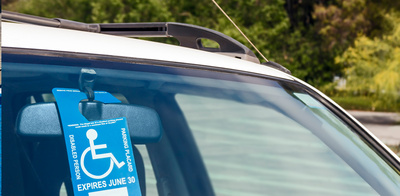
Exploring the Different Types of Handicap Placards in Iowa
Disability tags, also known as placards or permits, play a crucial role in promoting accessibility and inclusivity for individuals with mobility impairments. In IA, disability tags are issued to qualified individuals who have physical disabilities that affect their ability to walk long distances or perform other physical tasks. These tags allow users to park in designated accessible parking spaces, providing them with convenient access to essential services, businesses, and public spaces.
In IA, different types of disability tags are available to meet the unique needs of residents and visitors. Whether you have a permanent disability or a temporary mobility impairment, there’s a disability tag that can provide you with the necessary parking accommodations. In this article, we’ll explore the various types of handicap placards available in Iowa, the eligibility criteria, and the application process. We’ll also discuss the benefits of having a disability tag and provide answers to frequently asked questions to ensure that you have all the information you need to navigate the system effectively.
Understanding Handicap Placards in Iowa
Definition and Purpose
A disability tag (often called a placard or permit) in IA is a specialized parking authorization issued by the Iowa Department of Transportation (DOT) to individuals with disabilities that impair their ability to walk or otherwise limit their mobility. The purpose of the disability tag is to grant individuals with mobility impairments access to designated accessible parking spaces. These spaces are typically located closer to building entrances, offering convenience and reducing the physical strain associated with long walks or crowded parking lots.
Disability tags can be used in public and private parking lots, making it easier for individuals with disabilities to go about their daily activities, whether that involves visiting a doctor’s office, grocery shopping, or attending public events.
Legal Framework Governing Disability Tags
In IA, the issuance and use of disability tags are governed by both state and federal laws, including the Americans with Disabilities Act (ADA). The ADA ensures that accessible parking spaces are available to individuals with disabilities across the U.S., while IA state laws set specific requirements for how these tags are issued, used, and enforced within the state.
IA’s laws require businesses, public spaces, and other facilities to provide accessible parking spaces that meet specific standards, such as providing extra width for vehicles with wheelchair lifts and ensuring that accessible routes are free from obstructions.
Types of Handicap Placards Available in Iowa
There are several types of Iowa disabled permits available, each designed to meet the needs of individuals with different levels of disability and varying circumstances. These include:
1. Permanent Disability Tag
A Permanent Disability Tag is issued to individuals with long-term or permanent disabilities that significantly impair their mobility. This tag allows the user to park in designated accessible spaces without time restrictions. Permanent placards are typically valid for five years and must be renewed before their expiration date.
To qualify for a permanent disability tag, an individual must have a medical condition that makes it difficult or impossible to walk long distances, stand for extended periods, or move without assistance.
2. Temporary Disability Tag
A Temporary Disability Tag is intended for individuals with temporary mobility impairments, such as those recovering from surgery or injuries. Temporary tags are typically valid for up to six months, but they can be extended if the individual’s condition requires a longer recovery period.
Temporary tags are ideal for those who have a temporary disability but will eventually regain full mobility. Common conditions that may qualify for a temporary tag include recovery from knee or hip surgery, broken bones, or other injuries that limit walking.
3. Disabled Veteran Plates
IA offers Disabled Veteran Plates to veterans with service-related disabilities. These plates not only provide the same parking privileges as other disability tags but also honor the veteran’s service. To qualify for a Disabled Veteran Plate, veterans must provide documentation from the U.S. Department of Veterans Affairs (VA) confirming their service-connected disability.
Special Veteran Plates offer permanent parking accommodations and are affixed to the veteran’s vehicle, eliminating the need for a separate disability tag.
4. Special License Plates for Individuals with Disabilities
For individuals with permanent disabilities who frequently drive or are transported in the same vehicle, IA offers Special License Plates for Individuals with Disabilities. These plates serve as a permanent fixture on the vehicle and provide the same parking privileges as a tag. The primary benefit of having a special license plate is that it eliminates the need to display a hanging placard.
Special license plates are especially convenient for those who frequently drive their own vehicles and prefer a permanent solution over a tag that needs to be displayed.
Eligibility Criteria for Handicap Placards in Iowa
Qualifying Medical Conditions
To qualify for a disability tag in IA, individuals must have a medical condition that severely impairs their ability to walk or move. The IA DOT outlines specific criteria for eligibility, which include:
- Inability to walk more than 200 feet without stopping to rest.
- Severe lung disease that affects normal breathing and limits mobility.
- Cardiac conditions classified as Class III or IV by the American Heart Association.
- Use of portable oxygen to assist with breathing.
- Neurological, orthopedic, or arthritic conditions that affect balance, mobility, or motor function.
- Amputations or other conditions that require the use of a wheelchair, cane, crutches, or other assistive devices.
These conditions must be certified by a licensed healthcare provider, who will verify the applicant’s eligibility for a handicap permit.
Temporary vs. Permanent Disabilities
IA distinguishes between temporary and permanent disabilities when issuing disability tags. Individuals with permanent disabilities are eligible for long-term disability passes or special license plates, while individuals with temporary conditions can apply for temporary passes. The application process is similar for both, but the duration of the tag differs.
Permanent disabilities include conditions that are unlikely to improve or will require long-term use of mobility aids, while temporary disabilities include injuries or conditions that are expected to heal within six months to a year.
Specific Requirements for Disabled Veteran Plates
To apply for a Disabled Veteran Plate in IA, applicants must provide documentation from the VA confirming that they have a service-related disability. The VA must certify that the veteran’s disability qualifies for accessible parking privileges. The application process for Disabled Veteran Plates is similar to that of other disability tags, but additional documentation from the VA is required.
How to Apply for a Handicap Permit in Iowa
Step-by-Step Application Process
Applying for a disability tag in IA is a straightforward process. Here’s how to get started:
- Obtain the Application Form: Download the application form (Iowa DOT Form 411055) from the IA Department of Transportation website, or pick up a copy from your local driver’s license station or county treasurer’s office.
- Complete the Applicant Section: Fill out the applicant’s information, including name, address, and contact details.
- Get Medical Certification: Take the form to your healthcare provider (doctor, physician assistant, nurse practitioner, or chiropractor), who will complete the medical certification section. This certification verifies that you meet the eligibility criteria based on your medical condition.
- Submit the Application: Submit the completed form in person or by mail to the IA DOT. Be sure to include any additional required documents, such as proof of identity and, if applicable, proof of veteran status for Disabled Veteran Plates.
- Receive Your Tag: Once the application is processed, the IA DOT will issue your disability tag or license plate. The tag can be mailed to you, or you can pick it up in person.
Required Documentation
When applying for a disability tag in IA, you’ll need the following:
- A completed application form (Iowa DOT Form 411055).
- Medical certification from a licensed healthcare provider.
- Proof of identity, such as a driver’s license or state ID.
- If applying for a Disabled Veteran Plate, include documentation from the VA confirming your service-related disability.
Medical Certification Guidelines
Medical certification is required for all disability tag applications in IA. The healthcare provider must verify that the applicant meets the eligibility criteria based on their medical condition. Commonly accepted certifiers include:
- Physicians (MD or DO).
- Nurse practitioners.
- Physician assistants.
- Chiropractors (for mobility-related conditions).
Benefits of Having a Handicap Permit in Iowa
Access to Designated Parking Spaces
One of the most significant benefits of having a disability tag in IA is access to designated accessible parking spaces. These spaces are typically located closer to building entrances, making it easier for individuals with disabilities to access essential services, businesses, and public spaces without having to walk long distances.
Accessible parking spaces are available in public and private parking lots, including those at:
- Grocery stores and shopping centers.
- Medical facilities, such as hospitals, clinics, and doctor’s offices.
- Government buildings and post offices.
- Schools and universities.
- Tourist attractions, parks, and recreation areas.
These spaces also provide additional room for loading and unloading mobility aids such as wheelchairs, walkers, or scooters.
Exemptions from Metered Parking Fees and Time Limits
In many IA cities, individuals with a valid disability tag are exempt from parking meter fees. Additionally, some cities allow individuals with disability tags to park in time-restricted spaces for longer periods without facing fines. However, local regulations vary, so it’s essential to check the parking rules in each city or town you visit.
Convenient Parking for Caregivers and Family Members
For individuals who rely on caregivers or family members to drive them to appointments, stores, or social events, having a disability tag provides added convenience. As long as the person to whom the tag was issued is in the vehicle, caregivers and family members can use the tag to park in designated accessible spaces. This ensures that the person with the disability can be dropped off or picked up safely and conveniently.
Where to Use Your Disabled Permit in Iowa
Parking at Government Buildings, Hospitals, and Businesses
Disability tags are valid at government buildings, hospitals, and businesses across IA. Whether you’re visiting a local government office, attending a medical appointment, or running errands, your disability tag allows you to park in accessible spaces at:
- County courthouses and DMV offices.
- Healthcare facilities, including hospitals, clinics, and urgent care centers.
- Retail businesses and shopping malls.
Access to State Parks and Recreational Areas
IA’s state parks and recreational areas offer designated accessible parking spaces for visitors with disabilities. These spaces are typically located near visitor centers, picnic areas, and trailheads, allowing individuals with mobility impairments to enjoy IA’s natural beauty without facing unnecessary physical barriers.
Additionally, some state parks offer accessible trails, campsites, and recreational facilities for individuals with disabilities.
Traveling Outside of IA: Reciprocity with Other States
IA disability tags are recognized in other U.S. states under the Americans with Disabilities Act (ADA). This reciprocity means that individuals traveling from IA to other states can use their disability tag to park in accessible spaces. However, parking rules, such as metered parking exemptions and time limits, may vary from state to state, so it’s essential to check local regulations when traveling.
Renewing and Replacing a Handicap Placard
Renewal Process for Permanent and Temporary Tags
Permanent disability tags in IA are valid for five years, while temporary tags are typically valid for six months. To renew your disability tag, you must submit a renewal application to the IA DOT before the expiration date. For permanent tags , medical recertification is not usually required unless the individual’s condition has changed. Temporary tags may require updated medical certification if the condition persists.
Replacing Lost or Stolen Tags
If your disability pass or license plate is lost, stolen, or damaged, you can request a replacement by submitting a new application to the IA DOT. Be sure to provide a signed statement explaining the circumstances of the loss or theft. There may be a small fee for replacing a lost or stolen pass, but fees are typically waived for permanent disability tags.
Common Misuse of Disabled Permits
Misuse Penalties and Consequences
Misusing a disability tag is a serious offense in IA and can result in fines, penalties, and even the revocation of the tag. Common forms of misuse include:
- Using another person’s disability tag when the individual to whom it was issued is not in the vehicle.
- Parking in a disability space without a valid tag.
- Using an expired or invalid tag.
- Fraudulent use of a disability tag, such as using a counterfeit tag.
Penalties for misuse range from fines to criminal charges, depending on the severity of the violation. The IA DOT takes disability tag misuse seriously, as it prevents individuals with legitimate disabilities from accessing disabled parking spaces.
How to Avoid Violations
To avoid violations, it’s important to follow these guidelines:
- Only use the tag when the person with the disability is in the vehicle.
- Display the tag properly by hanging it from the rearview mirror when parked in a disability space.
- Renew the tag on time and ensure it’s valid before using it.
- Do not lend your tag to others, even if they are family members or caregivers.
Frequently Asked Questions (FAQs)
What medical conditions qualify for a disability tag in IA?
Qualifying conditions include:
- Inability to walk more than 200 feet without stopping to rest.
- Severe lung disease or heart conditions.
- Use of portable oxygen.
- Neurological, orthopedic, or arthritic conditions that impair mobility.
- Use of mobility aids such as a wheelchair, walker, or crutches.
How long does it take to get a disability tag in IA?
The processing time for a disability tag in IA is typically 7 to 10 business days after submitting the application. You can apply by mail or in person at your local county treasurer’s office or DMV.
Can I use my IA disability tag in other states?
Yes, IA disability tags are recognized in other U.S. states under the ADA. However, local parking regulations may vary, so it’s essential to check parking rules when traveling outside of IA.
Are there fees for applying or renewing a disability tag in IA?
There is no fee for applying for or renewing a permanent or temporary disability tag in IA. However, standard vehicle registration fees apply if you are applying for a disability license plate.
Can someone else use my disability tag when I’m not in the vehicle?
No, the disability tag can only be used when the person to whom it was issued is in the vehicle. Using the tag without the permit holder present is illegal and can result in fines and penalties.
What should I do if my disability tag is lost or stolen?
If your disability tag is lost or stolen, report it to the IA DOT and request a replacement by submitting a new application. There may be a small fee for replacing a lost or stolen tag.
Conclusion
Handicap placards in Iowa are a vital resource that helps individuals with disabilities access essential services, businesses, and public spaces more easily. Whether you have a permanent disability or a temporary injury, the IA DOT provides several types of disability tags to meet your needs, including permanent and temporary tags, Special Veteran Plates, and special license plates.
By understanding the eligibility criteria, application process, and proper use of your disability tag, you can ensure that you enjoy the benefits of accessible parking without any legal issues. Disability tags offer independence, convenience, and accessibility, making everyday life easier for people with mobility impairments.
.png)






